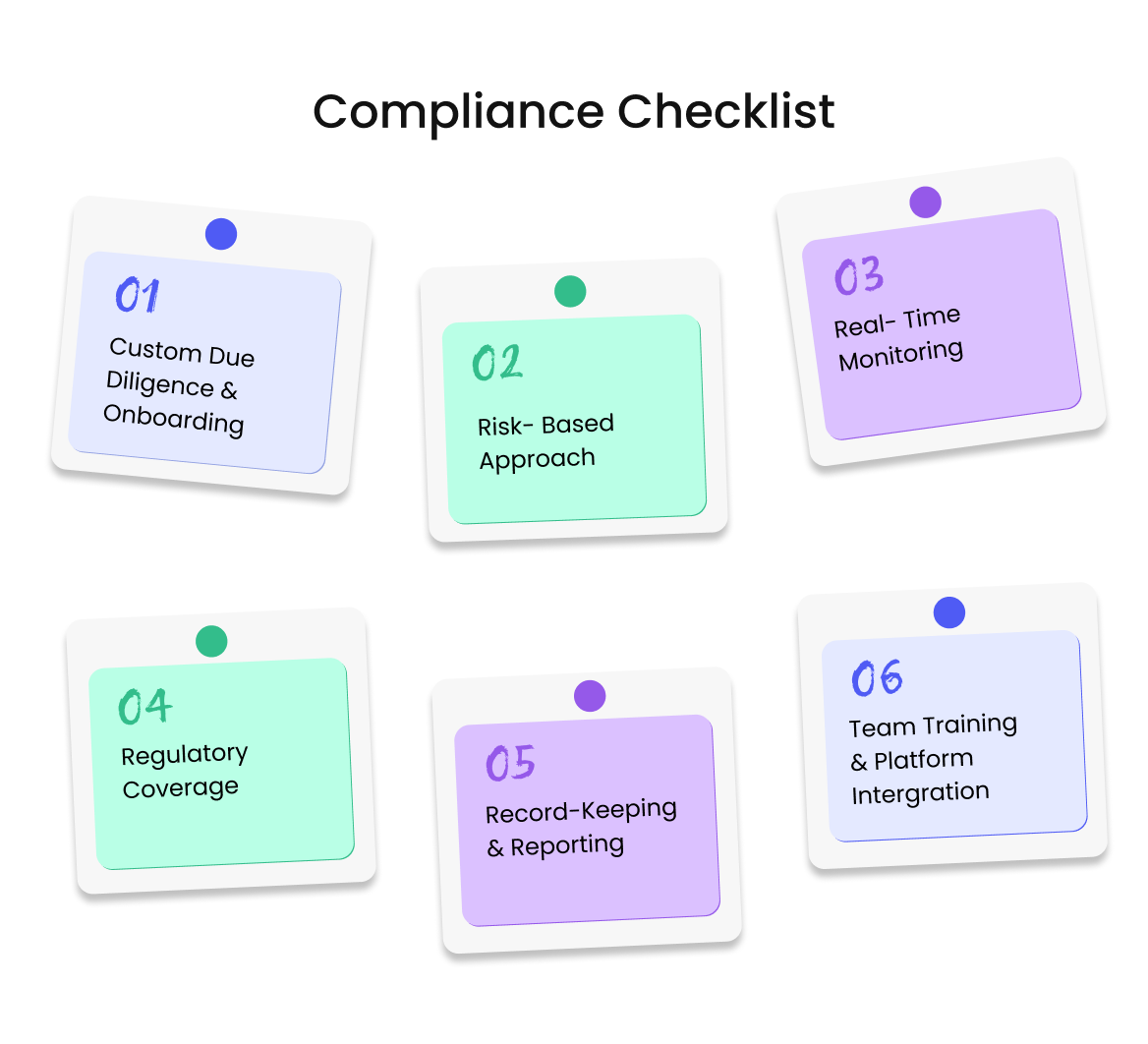
The Compliance Checklist for Marketplace Payouts in 2025
.png)
As marketplaces and gig platforms scale globally, compliance in payouts—particularly around AML and KYC—is no longer optional; it’s mission-critical. In 2025, regulators expect platforms to embrace proactive, tech-enabled approaches. Here's your updated compliance checklist to stay compliant and competitive.
1. Implement Robust Customer Due Diligence (CDD) & Onboarding
- Collect and verify identity details: Identity documents, geolocation, facial recognition/liveness checks—eKYC is now mainstream Shufti Pro
- Sanctions & PEP screening: Automatically screen workers against global watchlists for sanctions, politically exposed persons, and adverse media.
- Beneficial ownership transparency: When paying entities or agencies, verify their true owners in line with FATF Recommendation 24.
2. Use a Risk-Based Approach (RBA)
- Customize due diligence based on jurisdiction, transaction amount, and worker profile, rather than assuming “one-size-fits-all”.
- Ongoing risk assessments: Update risk scores as freelancer profiles or activity evolves—especially across regions with varying exposure.
3. Deploy Real-Time Monitoring & Transaction Analytics
- Monitor payouts dynamically for patterns like sudden high volume, unusual geographies, or rapid changes in frequencyMoody's.
- Use AI and ML tools to flag suspicious activity and reduce false positives—particularly effective for high-volume marketplace environments.
4. Ensure Full Regulatory Coverage
- Stay aligned with global frameworks: FATF, EU’s AML Directive (AMLR), FinCEN Beneficial Ownership Rule, and regional digital ID schemes.
- Integrate cross-border requirements especially in key markets like EU, UK, US, India, UAE, and APAC.
- RegTech integration: Use trusted providers (e.g., ComplyAdvantage) that offer real-time sanctions and PEP screening.
5. Maintain Record-Keeping & Reporting Standards
- Archive identity and onboarding data, sanctions checks, risk assessments, and transaction logs securely and audit-ready..
- Submit Suspicious Activity Reports (SARs) promptly where required
- Conduct independent audits and compliance reviews—internal or third-party—to validate controls.
6. Invest in Ongoing Training & Compliance Culture
- Equip your team with updated AML/KYC training—mandatory as rules evolve for 2025 and beyondKYC LookupKYC AML Guide.
- Capture learning and iterations in internal policies—compliance must adapt, not stagnateKYC AML GuideSmartSearch.
7. Leverage Compliance-First Platforms like MyGigsters
Instead of building compliance flows in-house, gig platforms should consider embedded fintech infra such as MyGigsters, which offers:
- Automated CDD/KYC & PEP screening, including identity verification and sanctions checks under a unified API.
- Risk-based workflow adaptation with built-in transaction monitoring and alerting.
- Automated record-keeping, reporting, and audit readiness—all tailored to marketplace payouts.
- Compliance across jurisdictions, with infrastructure capable of scale without banking licenses.
This embedded solution allows platforms to focus on growth, while MyGigsters handles the complex mechanics of payout compliance.
Compliance Checklist Summary

Final Thoughts
2025 calls for forward-leaning compliance strategies. Marketplaces paying freelancers must embed KYC, AML, and transaction monitoring directly into payouts. Adopting risk-based, tech-driven systems—either via embedded platforms like MyGigsters or compliant-first architecture—is no longer just smart—it’s necessary.


